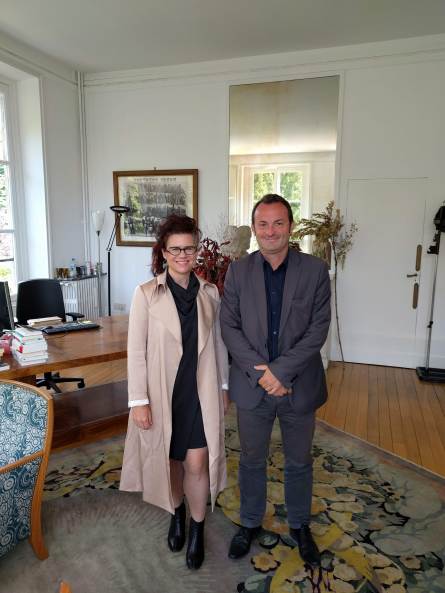A few weeks ago I visited the Société des gens de lettres (Society of People of Letters), a writers’ society founded 180 years ago by Balzac, Hugo, Dumas and Sand. It is one of some eighteen societies with the mission of protecting authors’ interests in France.
I was particularly interested in finding out what the SDGL thought about recent changes to French law that were intended to benefit authors in publishing contracts by imposing additional obligations on publishers and granting authors the right to reclaim their copyrights in certain circumstances. The law was changed in 2014, and now:
- Requires digital rights to be dealt with in a separate part of contracts (or else the grant is voidable);
- Requires publishers to exploit (and continue to exploit) works. If they fail to do so appropriately, authors can terminate their grant of rights (for both physical and digital exploitation);
- Requires publishers to provide accurate accounting statements at least yearly, and pay royalties at least yearly, or else authors can terminate the agreement;
- Enables authors to terminate publishing agreements if, at least four years after initial publication, no royalties have been paid two years in a row.
These rights can be exercised by an author or their agent simply giving notice, and as such can be exercised very cheaply.
What’s working:
The SGDL’s Directeur Général Geoffroy Pelletier was of the view that the new rights for authors to terminate were working well. He explained that these rights were necessary to address ‘imbalances’ created by publishers requiring transfers of rights for the entire term of copyright, but then not actually exploiting them (or continuing to exploit them). He was quite shocked when I told him that Australia’s law contains no general obligation for a publisher to continue to exploit a work, or redress for an author where they fail to do so (although there may well be something to this effect in individual contracts).

Rebecca Giblin with Geoffroy Pelletier, Directeur Général of the SGDL
What still needs to be done:
While there’s a right to royalty statements, the law does not yet require them to take any particular form. That’s a problem. I’ve seen royalty statements that provide very little useful information, and some that are virtually incomprehensible.
The SGDL advised that the broader French coalition of author groups has now managed to reach an agreement with many of the bigger publishers to utilise a more helpful form for future royalty statements. It’s not a legally binding accord, and it only covers perhaps ~80% of books published in France, but it’s a good start. Article 14 of the proposed new EU Directive on Copyright in the Digital Single Market would require member states to ensure authors receive ‘timely, adequate and sufficient information on the exploitation of their works’: if that gets up, France and other European countries will be obliged to take transparency much more seriously.
Also missing from the 2014 revised law is a right for authors to insist on an audit of their sales and licensing figures. Currently, French authors still have to take publishers’ word for it that they’ve got it right (unless there’s a contractual right to audit). This is not something that the proposed EU Directive would specifically rectify – but is certainly something to consider for future reform.


They seem to be headed in the right direction. Can we export these ideas, or is that just wishful thinking?
LikeLike
Sorry, I mean import these ideas.
I need sleep before posting.
LikeLike
An interesting post. And what French authors think about the European Commissiono proposal to introduce a best-seller clause?
LikeLike
They found it promising, but they also didn’t think it would do much to help the vast majority of authors (who earn maybe a thousand euros for a book). You might be interested in the Columbia conference panel we ran where Martin Senftleben and Severine Dusollier spoke about the dubious evidence of efficacy of the existing Dutch and German bestseller clauses.
LikeLike